Bringing a dog into your family is an incredibly rewarding experience. Dogs offer unconditional love, endless entertainment, and a unique bond that enriches family life. As any dog owner knows, these furry companions quickly become cherished members of the household, bringing joy and laughter into our homes. However, selecting the right dog breed is crucial to ensure a harmonious fit for your family’s lifestyle. This article will delve into the key characteristics that make certain dog breeds exceptionally well-suited for family environments. We will explore breeds known for their gentle nature, patience with children, trainability, and overall compatibility with family life, helping you find the best dog for your families.
Factors to Consider When Choosing a Family Dog
Choosing a family dog is a significant decision that goes beyond simply picking the cutest puppy. It’s about finding a companion whose temperament and needs align with your family’s dynamics, activity levels, and living space. A thoughtful approach involves honestly assessing your family’s lifestyle and capacity to provide for a dog’s well-being. It’s essential to consider whether you can realistically meet the demands of dog ownership, ensuring a happy and healthy life for your new pet and a positive experience for your family.
When searching for the best dog breeds for families, several crucial factors deserve careful consideration. Prioritizing these aspects will significantly increase the likelihood of a successful and fulfilling partnership between your family and your new canine friend.
Temperament
Temperament is paramount when selecting a family dog. A dog’s personality and disposition are key to their integration into a family environment, especially one with children. Ideally, you’ll want a breed known for its gentle, patient, and tolerant nature. These dogs are better equipped to handle the sometimes unpredictable energy and interactions of children.
Breeds like Labrador Retrievers and Poodles are often cited as excellent family dogs due to their typically calm, gentle, and affectionate temperaments. These breeds are generally known for their ability to form strong bonds with families and their patient demeanor, making them wonderful companions for both adults and children.
Size
The size of a dog is another practical consideration, particularly when families have young children or limited living space. While large dogs can be incredibly gentle and loving, their size can sometimes be unintentionally overwhelming, especially for smaller children. Small to medium-sized dogs are often considered ideal family dogs as they are generally easier to manage in a family setting and less likely to accidentally knock over or intimidate young children.
However, size shouldn’t be the only deciding factor. Temperament and energy levels are equally important, regardless of breed size. Some large breeds are known for their gentle and calm nature, making them suitable for families with enough space and experience to manage a larger dog.
Energy Level
A dog’s energy level is a critical factor in determining compatibility with your family’s lifestyle. Energetic breeds require significant daily exercise and mental stimulation to stay happy and healthy. If your family is active and enjoys outdoor activities, a high-energy dog might be a perfect match. However, if your family leads a more relaxed lifestyle, a less energetic breed would be a better choice.
Consider whether you and your children can realistically provide adequate exercise for a high-energy breed. If not, opting for a mellow companion with lower energy needs, such as a Bichon Frise or a Cavalier King Charles Spaniel, might be more suitable. Matching a dog’s energy level to your family’s activity level is crucial for preventing behavioral issues stemming from boredom and frustration.
Hypoallergenic Considerations
For families with allergy sufferers, hypoallergenic dog breeds can be a significant consideration. While no dog is truly 100% hypoallergenic, some breeds produce less dander and shed less hair than others, reducing the likelihood of triggering allergic reactions.
Breeds like Poodles, Bichon Frises, Kerry Blue Terriers, and Maltese are often recommended as hypoallergenic dog breeds for families. These breeds have coats that require regular grooming, but their minimal shedding can be a significant benefit for allergy-prone individuals. If allergies are a concern, it’s advisable to spend time with a prospective dog breed before bringing it home to assess any potential allergic reactions. This can help ensure a comfortable and healthy environment for everyone in the family.
Top Dog Breeds for Families
When it comes to selecting the best dog for a family, certain breeds consistently stand out due to their desirable traits. These breeds are generally known for their patient temperaments, adaptability to family life, and ability to form strong bonds with children. Prioritizing breeds with these qualities can significantly enhance the likelihood of a positive and enriching experience for both your family and your new canine companion. Here are some of the top dog breeds frequently recommended for families:
- Labrador Retriever
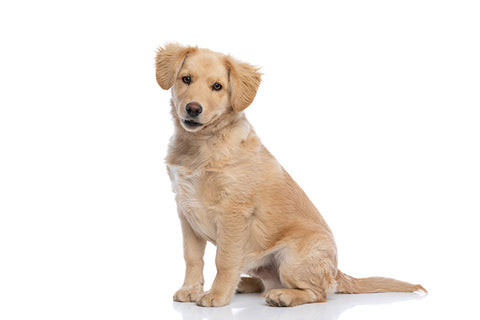 Labrador Retriever
Labrador Retriever
Labrador Retrievers are renowned for their friendly and outgoing nature, seamlessly integrating into bustling family life. Their playful enthusiasm and gentle disposition make them ideal companions for children of all ages. Labs are known for their patience and tolerance, making them excellent playmates and protectors.
Characteristics:
- Personality: Outgoing, patient, relaxed
- Energy: High
- Good with Children: Absolutely! Their patience is legendary. Supervision is always recommended when dogs and children interact.
- Good with Other Dogs: Yes
- Shedding: Year-round moderate
- Grooming: Weekly brushing, more frequent during shedding seasons.
- Bernese Mountain Dog
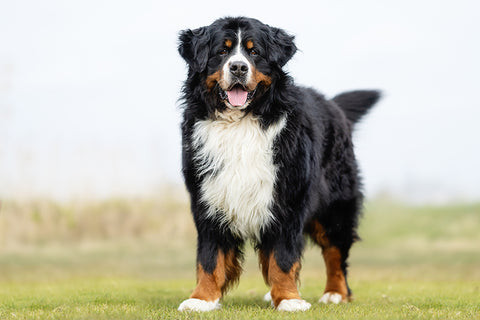 Bernese Mountain Dog
Bernese Mountain Dog
Bernese Mountain Dogs are gentle giants with affectionate and loyal personalities. Despite their large size, they are known for their calm and patient demeanor, making them wonderful family dogs. They are intelligent and eager to please, though they require moderate activity levels to stay happy and healthy.
Characteristics:
- Personality: Affectionate, gentle, playful
- Energy Level: Moderate; requires daily exercise.
- Good with Children: Yes
- Good with Other Dogs: Generally yes, but supervision during initial introductions is advisable.
- Shedding: Regular shedding
- Grooming: Weekly brushing to manage shedding.
- Poodle
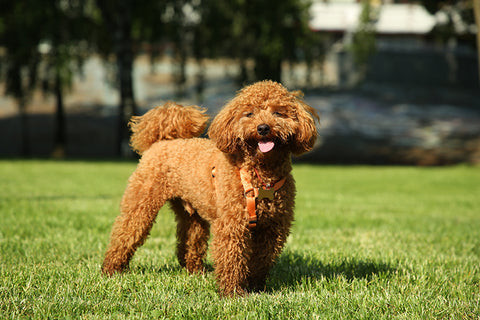 Poodle
Poodle
Poodles, available in standard, miniature, and toy sizes, are intelligent, energetic, and eager to please. Their playful nature and trainability make them excellent family pets. Poodles are also considered one of the best dog breeds for allergy sufferers due to their minimal shedding coats.
Characteristics:
- Personality: Trainable, proud, very smart
- Energy Level: High; needs daily exercise and mental stimulation.
- Good with Children: Yes
- Good with Other Dogs: With Supervision, early socialization is beneficial.
- Shedding: Minimal, hypoallergenic
- Grooming: Daily brushing and regular professional clipping are required to maintain their coat.
- Beagle
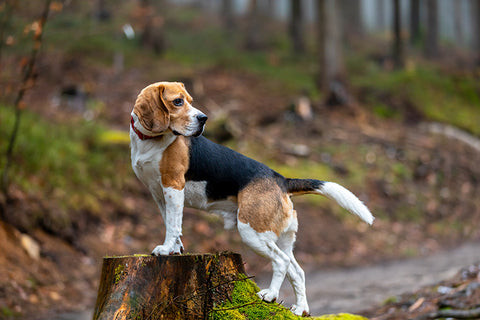 beagle
beagle
Beagles are charming and cheerful dogs, known for their gentle and playful nature. Their compact size and moderate energy levels make them adaptable to various family settings. Beagles are social dogs who thrive on companionship and are generally good with children.
Characteristics:
- Personality: Sweet, gentle, upbeat
- Energy Level: Moderate; enjoys walks and playtime.
- Good with Children: Yes
- Good with Other Dogs: Generally good with early socialization.
- Shedding: Year-round moderate
- Grooming: Weekly brushing is sufficient.
- Golden Retriever
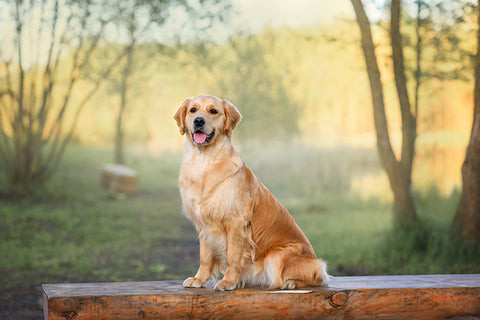 golden retriever
golden retriever
Golden Retrievers are synonymous with family-friendly dogs. Their fun-loving, cheerful, and affectionate personalities make them ideal companions for active families. Goldens are known for their patience, loyalty, and eagerness to please, thriving in households where they can be involved in family activities.
Characteristics:
- Personality: Affectionate, trusting, devoted
- Energy: Very active; requires significant daily exercise.
- Good with Kids: Excellent! Known for their gentle nature with children.
- Good with Other Dogs: Yes, excellent with other dogs when supervised.
- Shedding: Constant moderate-heavy
- Grooming: Daily brushing is needed to manage shedding, plus frequent vacuuming of the home.
- Bichon Frise
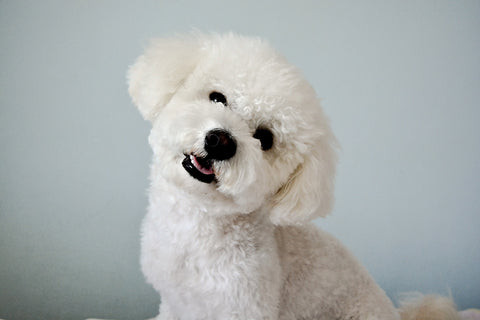 Bichon Frise
Bichon Frise
Bichon Frises are small, fluffy bundles of joy that bring cheer and delight to any home. Their playful, cheerful, and affectionate nature, combined with their hypoallergenic coats, makes them popular family dogs, especially in homes with allergy concerns. Bichons are known for their love of children’s laughter and their eagerness to learn tricks.
Characteristics:
- Personality: Playful, cheerful, perky
- Energy: Moderate; enjoys playtime and short walks.
- Good with Kids: Excellent
- Good with Other Dogs: Yes, they are great with other dogs when supervised.
- Shedding: Minimal, hypoallergenic
- Grooming: Daily brushing and regular professional haircuts are necessary to maintain their coat.
- Collie
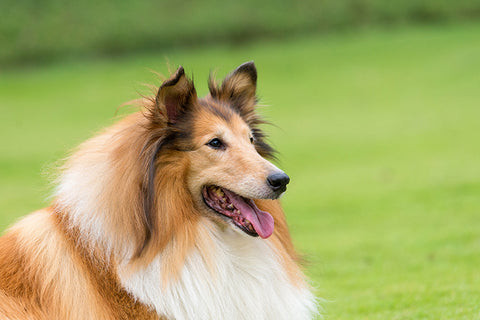 Collie
Collie
Collies, known for their loyalty and intelligence, form strong bonds with their families. Originating from herding breeds, they possess a protective instinct and a gentle nature, making them vigilant guardians of their “flock” – your family. Collies are active dogs that need consistent mental and physical stimulation to thrive.
Characteristics:
- Personality: Loyal, responsive, protective
- Energy: Very high; requires significant daily exercise and mental challenges.
- Good with Kids: Yes, but with supervision, their herding instincts might need to be managed around very young children.
- Good with Other Dogs: Yes, but early socialization is recommended.
- Shedding: Twice yearly heavy shedding seasons.
- Grooming: Daily brushing is essential during shedding months, weekly brushing otherwise.
- Newfoundland
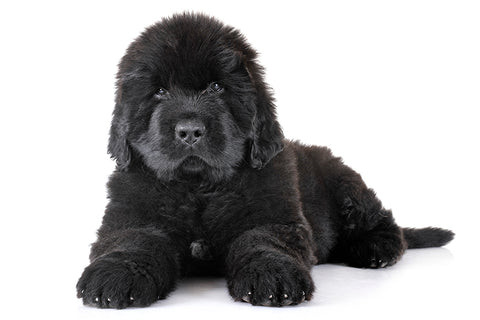 Newfoundland
Newfoundland
Newfoundlands are massive yet remarkably gentle dogs, often referred to as “gentle giants.” Despite their imposing size, they are known for their sweet temperament, patience, and devotion to their families. Newfoundlands are calm indoors and patient with children, making them surprisingly well-suited for family life, provided there is enough space.
Characteristics:
- Personality: Calm, generous, obedient
- Energy Level: Moderate; enjoys leisurely walks and swims.
- Good with Children: Excellent
- Good with Other Dogs: Yes, with supervision.
- Shedding: Year-round, heavy
- Grooming: Weekly brushing is necessary to manage their thick coat.
- Boxer
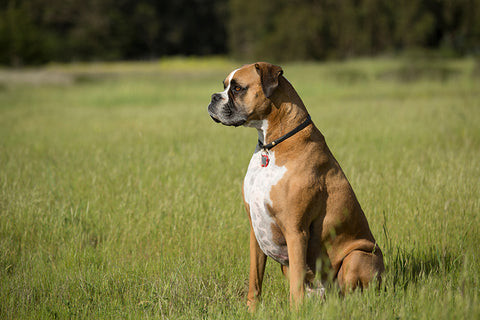 Boxer
Boxer
Boxers are energetic, playful, and protective dogs, ideal for active families seeking a fun-loving companion. Their patience, gentleness, and goofy nature make them wonderful family pets. Boxers thrive on interaction and require consistent training and exercise to channel their energy positively.
Characteristics:
- Personality: Fun-loving, bright, active
- Energy Level: Very high; needs substantial daily exercise.
- Good with Children: Excellent
- Good with Other Dogs: Requires socialization from a young age.
- Shedding: Moderate year-round
- Grooming: Weekly brushing is sufficient due to their short coat.
- Shih Tzu
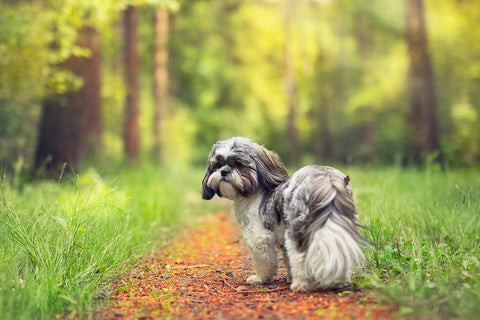 Shih Tzu
Shih Tzu
Shih Tzus are small, affectionate, and adaptable dogs, well-suited for families with various lifestyles. Their easygoing nature and minimal exercise needs make them great companions for apartment living or less active families. Shih Tzus are known for their friendly and trusting personalities.
Characteristics:
- Personality: Friendly and bright
- Energy Level: Moderate; enjoys short walks and indoor play.
- Good with Children: Excellent
- Good with Other Dogs: Yes
- Shedding: High
- Grooming: Regular brushing and professional grooming are needed to maintain their long coat.
- Welsh Corgi (Pembroke or Cardigan)
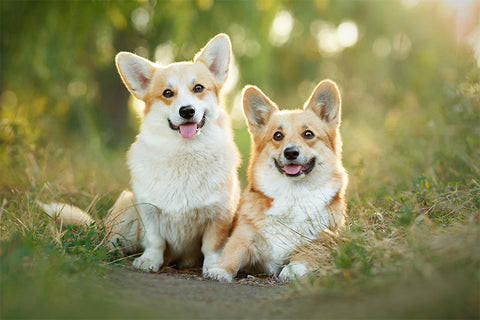 Welsh Corgi
Welsh Corgi
Welsh Corgis, whether Pembroke or Cardigan, are intelligent, bold, and playful dogs. Originally bred for herding, they retain a spunky attitude and enjoy engaging in playful activities with children. Corgis thrive on being part of family activities and are known for their loyalty and trainability.
Characteristics:
- Personality: Bold, smart, vocal
- Energy Level: Moderate; enjoys walks and playtime but not overly demanding.
- Good with Children: Good with supervision; their herding instincts might surface with very young children.
- Good with Other Dogs: Requires socialization.
- Shedding: Heavy year-round
- Grooming: Regular brushing is needed to manage shedding.
- Irish Setter
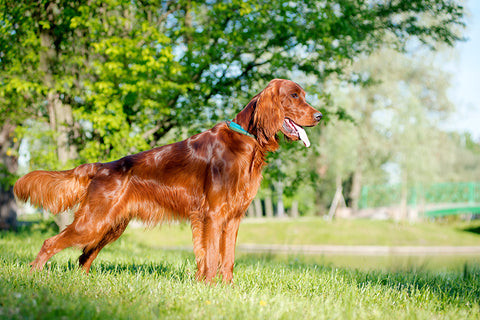 Irish Setter
Irish Setter
Irish Setters are active, fun-loving, and enthusiastic dogs with a zest for life. Their playful and demonstrative nature makes them wonderful companions for families who enjoy outdoor activities. Irish Setters are known for their friendly and outgoing personalities, always eager to greet new people and engage in fun.
Characteristics:
- Personality: Rambunctious, clownish, demonstrative
- Energy Level: High; needs significant daily exercise to meet their needs.
- Good with Children: Good with supervision.
- Good with Other Dogs: Yes
- Shedding: Significant year-round
- Grooming: Thrice weekly brushing is recommended to manage their coat.
- Vizsla
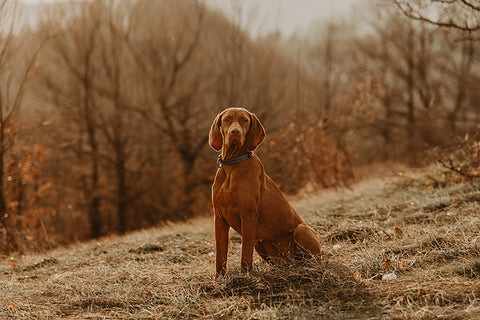 Vizsla
Vizsla
Vizslas are striking and elegant dogs known for their gentle and energetic personalities. Their short coat, lacking an undercoat, results in minimal shedding, making them a cleaner option for families, especially active ones. Vizslas are highly affectionate and thrive on close companionship with their families.
Characteristics:
- Personality: Gentle and energetic
- Energy Level: High; requires ample daily exercise.
- Good with Children: Yes, with supervision.
- Good with Other Dogs: Yes, but under supervision, early socialization is important.
- Shedding: Low
- Grooming: Weekly brushing is typically sufficient.
- Samoyed
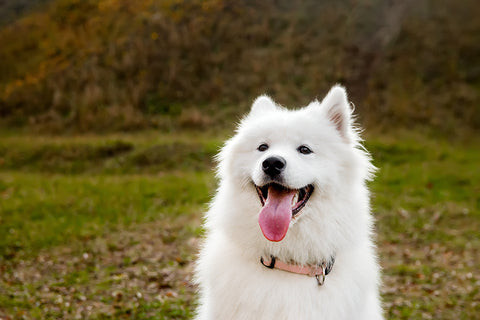 Samoyed
Samoyed
Samoyeds are known for their distinctive “Sammy smile,” reflecting their amiable and friendly temperament. These beautiful, fluffy dogs are loyal and adaptable to family routines. Samoyeds thrive on companionship and are generally good-natured with children, although their high energy levels and grooming needs should be considered.
Characteristics:
- Personality: Friendly and gentle
- Energy Level: High; needs regular exercise to stay happy.
- Good with Children: Yes, but may need supervision due to their size and energy.
- Good with Other Dogs: Yes
- Shedding: High
- Grooming: Brushing twice a week is essential to manage their thick coat and shedding.
(Note: Border Collie was removed from this list as while intelligent, their high energy and need for constant mental stimulation might not make them the easiest “best family dog” for average families compared to the other breeds listed. It’s better suited for experienced dog owners with active lifestyles.)
Which is the Friendliest Dog Breed for Families?
While proper socialization plays a crucial role in shaping a dog’s temperament, some breeds are naturally predisposed to being exceptionally friendly and outgoing. These breeds often excel as family companions due to their inherent desire to connect with people and other animals. If friendliness is a top priority for your family, consider these breeds known for their warm and approachable nature:
- Labrador Retriever
It’s no surprise that Labrador Retrievers consistently top popularity charts. Their eagerness to please and love for people and animals is unparalleled. Labs are known for their patience, gentle nature, and overall friendliness, making them arguably one of the friendliest of all dog breeds, and certainly among the Best Dogs For Families.
- Golden Retriever
Golden Retrievers share many of the Labrador Retriever’s amiable qualities. They are incredibly friendly, tolerant, and make friends easily. Goldens are generally happy and enthusiastic, radiating positivity and affection, making them delightful family members.
- Cavalier King Charles Spaniel
Cavalier King Charles Spaniels are small dogs with big hearts. Their gentle and mild-mannered nature makes them wonderful companions for everyone, from young children to seniors. Cavaliers are known for their affectionate and adaptable personalities, thriving on human companionship.
- Irish Setter
Irish Setters, beneath their elegant appearance, possess incredibly outgoing and friendly personalities. They are known for their enthusiastic greetings and love for making new human friends. While energetic, their affectionate nature and desire to befriend everyone make them wonderful family dogs.
- Mixed Breed Dogs
Mixed-breed dogs offer a wonderful opportunity to find a uniquely friendly companion. Many mixed breeds inherit the desirable temperaments of family-friendly breeds like Labradors and Retrievers. Adopting a mixed-breed dog can bring the joy of a friendly and loving dog into your family, often with the added benefit of supporting animal shelters and rescue organizations.
What is the Best Low Maintenance Dog Breed for Families?
For busy families or those new to dog ownership, low-maintenance dog breeds can be an appealing option. These breeds typically require less grooming, exercise, and training compared to more demanding breeds. Choosing a low-maintenance dog can make dog ownership more manageable and enjoyable for families with limited time or experience.
While all dogs require commitment and care, some breeds are inherently more low-maintenance than others. Small to medium-sized breeds with moderate energy levels and minimal grooming needs are generally considered the best low-maintenance family dogs. Breeds like Beagles, French Bulldogs, and Cavalier King Charles Spaniels can be good choices, but always research individual breed needs and consider your family’s lifestyle.
Even low-maintenance dogs still need regular short walks, playtime, and, of course, plenty of love and attention to stay happy and healthy. They are often content to lounge around the house with their families, making them adaptable to various living situations.
Essential Tips for Caring for Your Family Dog
Bringing a dog into your family is a commitment that requires ongoing care and attention. Establishing good habits and routines from the start will ensure a happy, healthy life for your dog and a positive experience for your entire family. Here are some essential tips for caring for your family dog:
- Create a Clean and Safe Home Environment
Dog-proofing your home is crucial for your dog’s safety. Get down to nose level and identify potential hazards. Secure loose wires, store cleaning supplies and medications out of reach, and remove any small objects that could be choking hazards. Ensure your yard is securely fenced to prevent escapes. Creating a safe environment minimizes the risk of accidents and injuries.
- Stick to a Reliable Routine
Dogs thrive on routine and consistency. Establish a regular schedule for feeding, walks, playtime, and potty breaks. Consistency helps with training, reduces anxiety, and promotes good behavior. Feeding your dog at the same times each day with a high-quality dog food contributes to their overall well-being.
- Make Veterinary Care a Priority
Regular veterinary care is essential for maintaining your dog’s health. Schedule routine checkups, vaccinations, and parasite prevention. Promptly address any health concerns by consulting your veterinarian. Following your vet’s advice on diet, exercise, and preventative care will help ensure your dog lives a long and healthy life.
- Engage the Kids
Involve children in caring for the family dog in age-appropriate ways. Teach them how to interact gently with the dog, supervise their playtime, and assign them tasks like filling water bowls or assisting with grooming. This fosters a sense of responsibility in children and strengthens the bond between them and the dog. Always supervise interactions between young children and dogs to ensure safety for both.
- Proper Diet and Exercise
Providing a balanced diet and adequate exercise is fundamental to your dog’s well-being. Feed your dog a high-quality dog food appropriate for their age, breed, and activity level. Follow your veterinarian’s guidelines on portion sizes to prevent overfeeding and obesity. Ensure your dog gets sufficient daily exercise to meet their breed-specific needs, whether it’s walks, runs, playtime in the yard, or interactive games. Both physical and mental stimulation are vital for a happy and well-adjusted dog.
Conclusion
Adding a dog to your family is a decision filled with joy and potential for lasting companionship. Carefully considering breed traits, individual temperaments, and your family’s lifestyle is essential for finding the perfect furry friend. While the effort involved in choosing the right dog and providing proper care is significant, the rewards are immeasurable. The unconditional love, loyalty, and laughter that a dog brings into a family create years of cherished memories and an unbreakable bond.
Considering welcoming a puppy into your family? Join a Puppy Club for valuable resources and support during your puppy’s crucial first year. You’ll gain access to expert nutritional advice and essential tips to help your puppy thrive, setting the stage for a lifetime of happy companionship.

